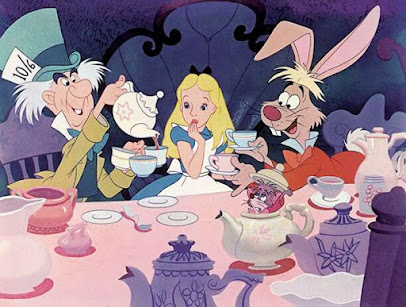 |
| NATO expansion meeting? |
Mearsheimer's The Great Delusion: Liberal Dreams and International Realities depicts the 2014 Ukraine conflict as an outgrowth of the policies of Liberal Hegemony, which ignored geopolitical realities and doomed Ukraine to war.
It all goes back to the collapse of the Soviet Union:
"When the Cold War was ending, the Soviet Union made it clear that it favoured keeping the US military in Europe and maintaining NATO. The Soviet leaders understood that this arrangement had kept Germany pacified since World War II and would continue doing so after the country unified and became much more powerful. But Moscow was deeply opposed to NATO enlargement."
Multiple sources say that the US made verbal promises to the Soviets that no such expansion would occur. Clinton went ahead anyway. The first tranche was in 1999, and brought in Poland, Hungary and the Czech Republic.
The second tranche occurred in 2004, and added Bulgaria, Romania, Slovakia, Slovenia, Estonia, Latvia and Lithuania.
None of this was forced. The new members applied of their own accord; none were pressured. It is likely many felt compelled to do so out of fear of their former occupier: Russia.
It's also worth mentioning that all of the NATO countries enthusiastically supporting Ukraine are Eastern European, with the exception of the United Kingdom and the US. France and Germany are sending little aid, likely because they are heavily dependent of Russian oil and gas. If that is cut off, Germany will descend into a recession.
"The real trouble began at the NATO summit in Bucharest in April 2008, when Ukraine's and Georgia's membership came up for discussion... Putin maintained that admitting those two countries would represent a 'direct threat' to Russia. One Russian newspaper reported that Putin, speaking directly to Bush, 'very transparently hinted that if Ukraine was accepted into NATO, it would cease to exist.'"
That's more than a little alarming.
Russia didn't wait to act. It invaded Georgia in August, 2008, after Georgian President Saakashvili ordered his military to reassert control over two pro-Russian breakaway republics (you can't join NATO if you have disputed territory). That was used to justify a full scale Russian invasion (sorry I mean 'humanitarian intervention').
By occupying Crimea and the Donbas, Putin blocks Ukraine joining NATO, as it introduces that niggling territorial dispute. He also warned that he'd invade if Ukraine cracked down on the rebels, and cut off Ukraine's gas supply a few times.
"(Putin) preferred to keep Georgia weak and divided and decided to humiliate Saakashvili... and gained control over Abkhazia and South Ossetia. The West did little in response, leaving Saakashvili in the lurch."
The US packaged NATO enlargement, EU expansion and democracy promotion into a policy bundle that Mearsheimer argues "turned Moscow into an enemy, leading directly to the Ukraine crisis."
Ukrainian President Yanukovych's government collapsed in January 2014, and the new regime was:
"thoroughly pro-Western and anti-Russian. Moreover, it contained four members who could legitimately be labled neofascists. Most importantly, the US government backed the coup, although the full extent of its involvement is unknown... It is hardly surprising that Russians of all persuasions think Western provocateurs, especially the CIA, helped overthrow Yanukovych."
I get the impression that a critical mass of Ukrainians were in favour of that as well, but that doesn't mean the US didn't help, either.
The United States reserves the right to block foreign interference anywhere in the Americas. It's a very Realpolitik position, and one which Russia feels it can apply to former Soviet Republics and Warsaw Pact members.
"Most realists opposed expansion because they thought a declining power with an aging population and a one-dimensional economy did not need to be contained, and they feared that the enlargement would strongly motivate Moscow to cause trouble."
Measheimer quotes George Kennan, who had this to say about NATO expansion:
"I think the Russian will gradually react quite adversely and it will affect their policies. I think it is a tragic mistake. There was no reason for this whatsoever. No one was threatening anyone else."
So fear of invasion leads to wanting to join NATO which leads to actual invasion, which wouldn't have happened if they hadn't feared invasion.
It's a mad, mad, mad, mad world.

No comments:
Post a Comment